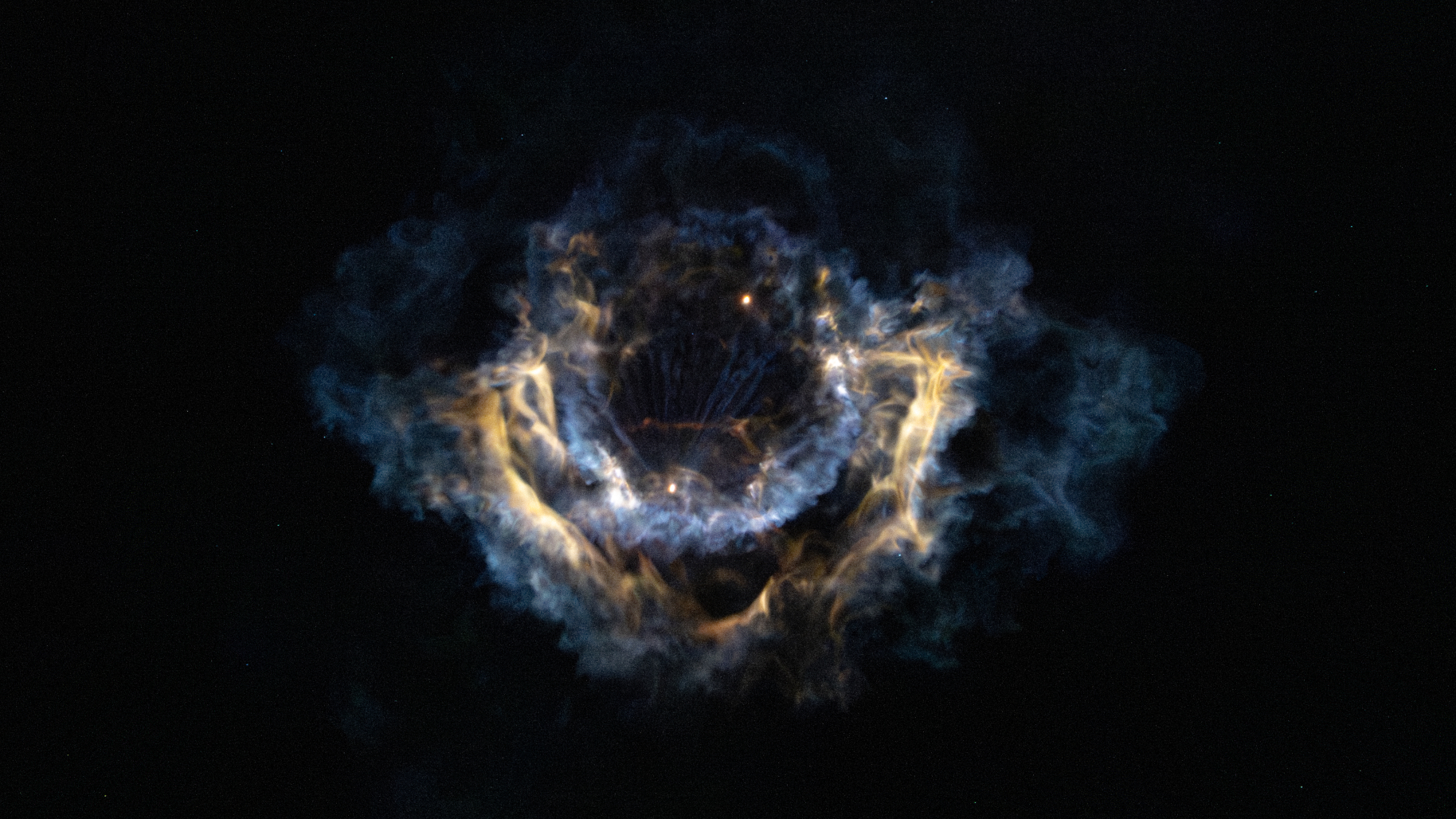Intuitive Machines, NASA's Hired Ride to the Moon, Aims for 2021 Lunar Landing

Breaking space news, the latest updates on rocket launches, skywatching events and more!
You are now subscribed
Your newsletter sign-up was successful
Want to add more newsletters?

Delivered daily
Daily Newsletter
Breaking space news, the latest updates on rocket launches, skywatching events and more!

Once a month
Watch This Space
Sign up to our monthly entertainment newsletter to keep up with all our coverage of the latest sci-fi and space movies, tv shows, games and books.

Once a week
Night Sky This Week
Discover this week's must-see night sky events, moon phases, and stunning astrophotos. Sign up for our skywatching newsletter and explore the universe with us!

Twice a month
Strange New Words
Space.com's Sci-Fi Reader's Club. Read a sci-fi short story every month and join a virtual community of fellow science fiction fans!
One of NASA's two hired rides to the moon's surface is tackling a host of milestones leading up to a July 2021 launch and looking ahead to future flights.
Intuitive Machines, a company based in Houston, signed on in May to ferry five NASA payloads to the moon next summer. Now, the company's lander has a ride and a destination, and the team is filling out the package of payloads destined for the lunar surface. But as the company continues to prepare, it also watched another team fail to accomplish the same mission when India's Chandrayaan-2 moon lander, Vikram, apparently crashed into the lunar surface.
"There's so many people attempting to land on the moon," Trent Martin, vice president of aerospace services for Intuitive Machines, told Space.com. "Not surprisingly, it's really hard to land on the moon, and we're aware of that. We're trying our best to learn lessons from those that have succeeded and those that have been not as successful."
Related: 50 Years After Apollo 11, A New Moon Rush Is Coming
"We were disappointed that they were unable to succeed in their soft landing," Martin said of the Indian team behind Chandrayaan-2. "But the more people that go to the moon, the better for the market, so we're happy when anyone is on their way to the moon."
Of course, Intuitive Machines is happiest when groups are on their way to the moon via their lander, which is dubbed Nova-C. On its first voyage, the spacecraft will carry five NASA payloads and two or three commercial payloads, Martin said. The company is also in discussions with a host of countries that may be interested in joining the flight.
"We certainly are looking at all the major space players," Martin said. "[We're] finding some in the countries you might expect and then we're finding some potential customers in countries that are emerging in the space business, who have the will to go do science on the moon but not the capability yet."
Breaking space news, the latest updates on rocket launches, skywatching events and more!
Whoever signs on for Nova-C's first journey will have their payload deposited in Mare Serenitatis, Intuitive Machines has decided. When the company first signed with NASA, it was discussing a potential landing at Oceanus Procellarum as well; it has now concluded that Mare Serenitatis will be safer for the attempt.
"Whether we were on the east side or the west side didn't really matter to us," Martin said. "There was no specific requirement from any of the payloads that we're currently flying to land at a specific location on the moon, so we chose the location that allowed us the best opportunity of landing on our first mission."
NASA's payloads on that mission will include a retroreflector, a radio science instrument, navigation technology and a camera that will study the plume of lunar dust created by the rockets slowing the lander's arrival to the surface.
With the commercial payloads Intuitive Machines is discussing so far, the company believes it has filled 121 lbs. (55 kilograms) of its 220-lbs. (100-kg) capacity for landed cargo; the rest could be allotted to landed or orbiting payloads. But the company is also looking to future missions, including developing larger landers that could bring 1,100 lbs. (500 kg) and 2,200 lbs. (1,000 kg) of cargo to the surface. Such next-generation landers could fly as soon as 2023, Martin said.
Intuitive Machines has also arranged for its first launch and will fly on a SpaceX Falcon 9 rocket. "Securing our ride to the moon is a major milestone that we are thankful to be part of," Martin added in an emailed statement. "The partnership between Intuitive Machines and SpaceX is an example of two stellar private companies working together with NASA to advance space exploration."
- It's 2019. Why Haven't Humans Gone Back to the Moon Since the Apollo Missions?
- From Apollo to Artemis — How Astronaut Food May Change When We Return to the Moon
- Scientists Test Mars Spacesuit By Climbing a Glacier in Iceland
Email Meghan Bartels at mbartels@space.com or follow her @meghanbartels. Follow us on Twitter @Spacedotcom and on Facebook.

Meghan is a senior writer at Space.com and has more than five years' experience as a science journalist based in New York City. She joined Space.com in July 2018, with previous writing published in outlets including Newsweek and Audubon. Meghan earned an MA in science journalism from New York University and a BA in classics from Georgetown University, and in her free time she enjoys reading and visiting museums. Follow her on Twitter at @meghanbartels.
